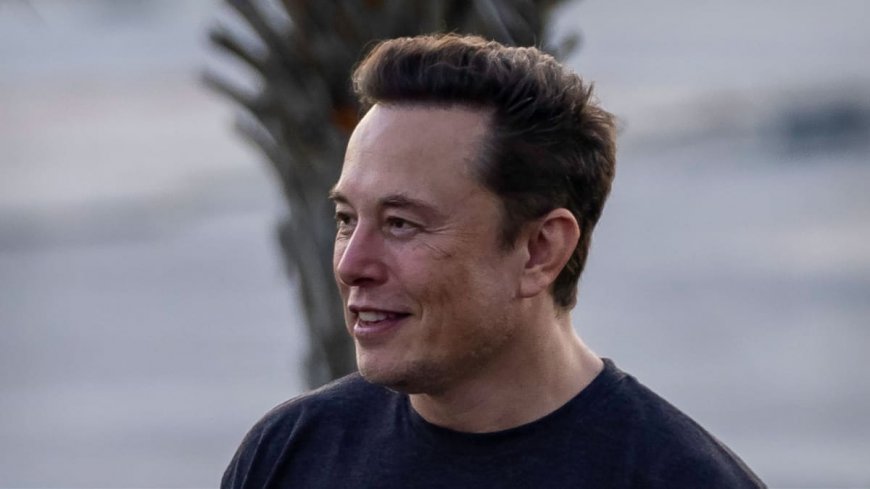Elon Musk Questions the Strength of the U.S. Economy
The serial entrepreneur is one of the voices which believe that the world's largest economy is already in recession.

For many months now, he has been warning of a deep recession, brought about by the actions of the Federal Reserve to fight inflation, which is at its highest in several decades.
Elon Musk, the billionaire entrepreneur, believes that the U.S. economy is slowing down and that the Fed continues to make things worse.
After leaving interest rates near zero for most of the coronavirus pandemic, despite stimulus packages to help households and support the economy, the Fed has changed gears in the face of an unprecedented surge in prices. The central bank raised its interest rates during its most recent meeting, putting its benchmark rate between 5% and 5.25%.
For many experts, this monetary policy will undoubtedly have a negative impact on economic activity and the economy as a whole. The purchasing power of households is notably affected, which reduces their expenditures. The cost of money or the tap of credit becomes expensive, which limits the ability of households to borrow as they also face rising monthly payments on their existing loans. Companies, on their side, end up with unsold inventory and have to pay dearly to borrow, in order to finance their projects. Basically, it's an infernal circle.
More Rate Hikes?
Many experts therefore believe that the economy is already in a recession or that the economic slowdown is accelerating, despite less alarmist economic data and data that encourages the Fed to continue its monetary policy as is.
This is the case with the latest labor market data. The U.S. economy added far more new jobs than expected last month, but slowing wage growth and a higher increase in the headline unemployment rate suggest that gains won't likely alter market projections for the Federal Reserve rate hikes.
The Labor Department's Bureau of Labor Statistics (BLS) said on June 2 that 339,000 new jobs were created last month, the strongest increase since January and well ahead of the Wall Street consensus forecast of a 185,000 gain. Private payrolls were pegged at 283,000, the BLS said, as the unemployment rate jumped to 3.7% from 3.4%, which was the lowest since 1969.
The BLS also revised its April estimate higher, to 294,000 from its original estimate of a 253,000 net gain, while lifting its March estimate to 217,000 from its prior estimate of 165,000.
Former U.S. Treasury Secretary Larry Summers said that the report suggests that the Fed should raise interest rates in July, if it wants to maintain a steady rate of increases.
"Another way to put it is they are exaggerating the impact & efficacy of monetary policy in slowing the economy. I read this as a strong report," the star Harvard economist said on Twitter on Jun. 2, referring to those who are urging the Fed to pivot. "The general tendency of the data has been v. much towards saying the economy-at least for this while-has a fair amt [amount] of robustness in it."
"If the @federalreserve doesn't raise rates in June, I think they have to be open to the possibility they may have to raise rates by 50 basis points in July, if economy continues to stay way hot & if inflation figures are robust."
The Fed meets next on June 14-15, followed by another Federal Open Market Committee (FOMC) on July 26-27.
'Something Doesn’t Add Up'
Summers' analysis was decried by Musk, who, for several months, has been calling for the central bank to lower interest rates in order to avoid deflation.
"That would be insane," the tech billionaire said of Summers' prediction.
The CEO of Tesla (TSLA) - Get Free Report, who is also the founder of SpaceX and the owner of Twitter, also attacked the data used by the Fed to determine its monetary policy. He thus tried to discredit the figures of the labor market.
"It is becoming obvious that the govt is reporting fake numbers initially, then revising them downward in the following months when they think nobody is paying attention," posted on June 3 on a Twitter account the tech mogul often exchanges with.
In a video, Peter St Onge, a Research Fellow at the conservative Heritage Foundation, wondered whether the employment figures are manipulated, because he noticed significant differences between the initial figures and the revised data.
Musk shared this thinking and was even unequivocal.
"Something doesn’t add up," the Techno King said.
Basically, the federal government may be using economic data engineered to guide the Fed's monetary policy to a given direction.
It should be noted that the revision of economic data is an old practice to which all investors and stakeholders are accustomed. Sometimes there are dramatic changes between the first estimate and the final revision.
What's Your Reaction?


























































